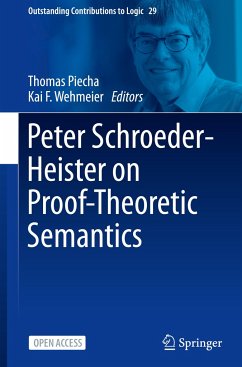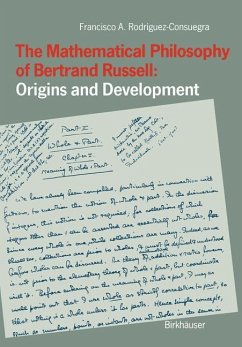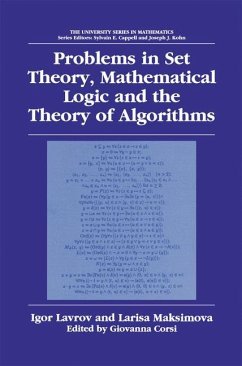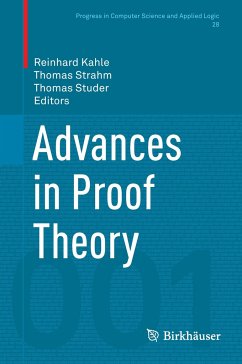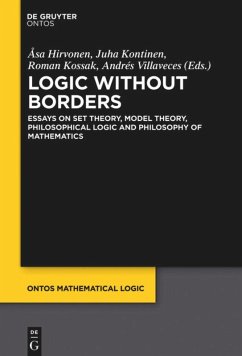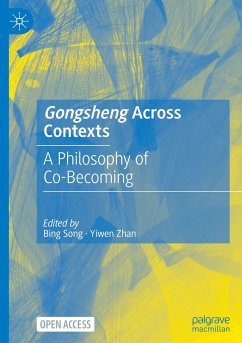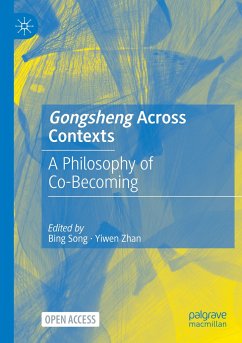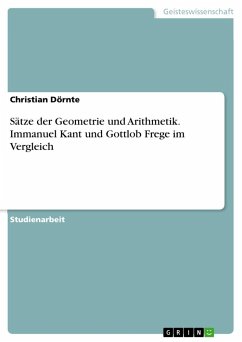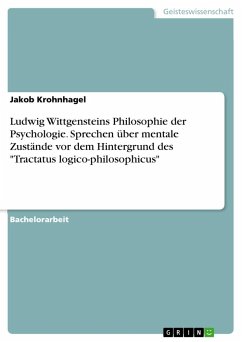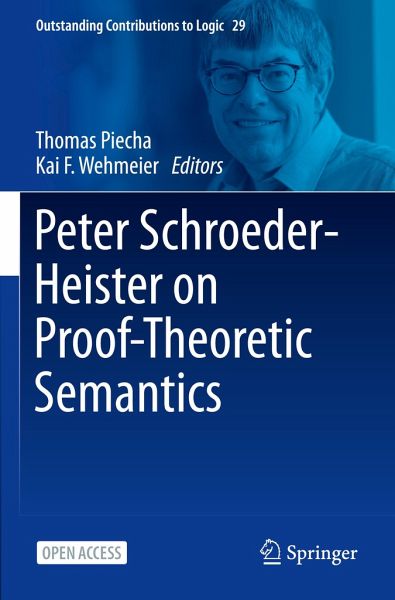
Peter Schroeder-Heister on Proof-Theoretic Semantics
Versandkostenfrei!
Versandfertig in 6-10 Tagen
31,99 €
inkl. MwSt.

PAYBACK Punkte
16 °P sammeln!
This open access book is a superb collection of some fifteen chapters inspired by Schroeder-Heister's groundbreaking work, written by leading experts in the field, plus an extensive autobiography and comments on the various contributions by Schroeder-Heister himself. For several decades, Peter Schroeder-Heister has been a central figure in proof-theoretic semantics, a field of study situated at the interface of logic, theoretical computer science, natural-language semantics, and the philosophy of language.The chapters of which this book is composed discuss the subject from a rich variety of an...
This open access book is a superb collection of some fifteen chapters inspired by Schroeder-Heister's groundbreaking work, written by leading experts in the field, plus an extensive autobiography and comments on the various contributions by Schroeder-Heister himself. For several decades, Peter Schroeder-Heister has been a central figure in proof-theoretic semantics, a field of study situated at the interface of logic, theoretical computer science, natural-language semantics, and the philosophy of language.
The chapters of which this book is composed discuss the subject from a rich variety of angles, including the history of logic, the proper interpretation of logical validity, natural deduction rules, the notions of harmony and of synonymy, the structure of proofs, the logical status of equality, intentional phenomena, and the proof theory of second-order arithmetic. All chapters relate directly to questions that have driven Schroeder-Heister's own research agendaand to which he has made seminal contributions. The extensive autobiographical chapter not only provides a fascinating overview of Schroeder-Heister's career and the evolution of his academic interests but also constitutes a contribution to the recent history of logic in its own right, painting an intriguing picture of the philosophical, logical, and mathematical institutional landscape in Germany and elsewhere since the early 1970s. The papers collected in this book are illuminatingly put into a unified perspective by Schroeder-Heister's comments at the end of the book. Both graduate students and established researchers in the field will find this book an excellent resource for future work in proof-theoretic semantics and related areas.
The chapters of which this book is composed discuss the subject from a rich variety of angles, including the history of logic, the proper interpretation of logical validity, natural deduction rules, the notions of harmony and of synonymy, the structure of proofs, the logical status of equality, intentional phenomena, and the proof theory of second-order arithmetic. All chapters relate directly to questions that have driven Schroeder-Heister's own research agendaand to which he has made seminal contributions. The extensive autobiographical chapter not only provides a fascinating overview of Schroeder-Heister's career and the evolution of his academic interests but also constitutes a contribution to the recent history of logic in its own right, painting an intriguing picture of the philosophical, logical, and mathematical institutional landscape in Germany and elsewhere since the early 1970s. The papers collected in this book are illuminatingly put into a unified perspective by Schroeder-Heister's comments at the end of the book. Both graduate students and established researchers in the field will find this book an excellent resource for future work in proof-theoretic semantics and related areas.





